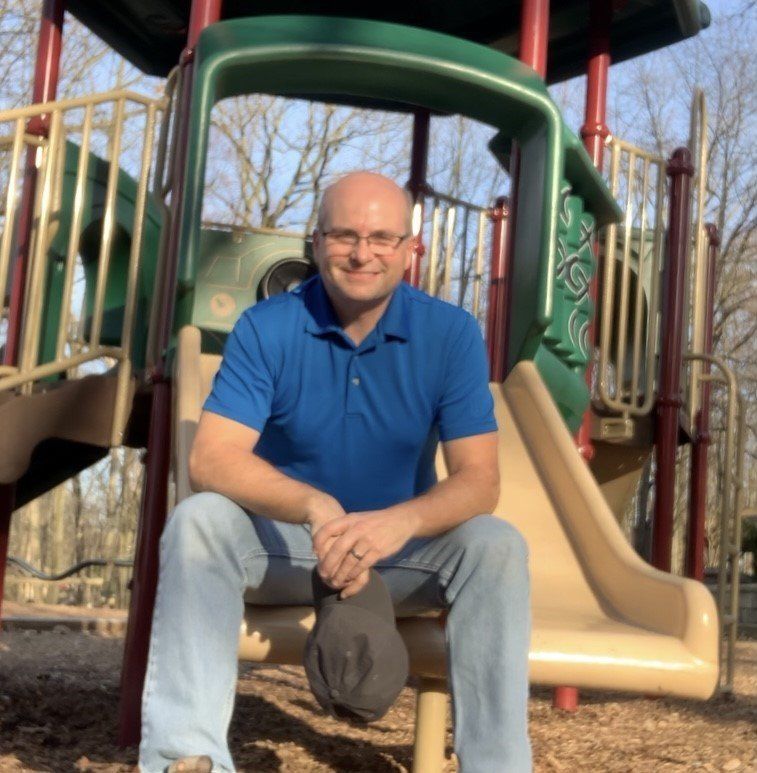Learn more about my book "The Courageous Ask"
Speed Bumps Are Vital in Leadership Development
All of us have traveled over speed bumps. They are common in parking lots and neighborhoods. Most people probably don’t even think about speed bumps until they run over one a little too fast, or they are in a hurry and encounter one.
Many times people take drastic measures to avoid them, swerving to one side so only two tires hit them or none at all. Or they won’t travel in an area where they know a speed bump is located.
We don’t want to slow down. We want to keep going, full speed ahead, even if the speed bump could cause long-term damage.
I am no different from anyone else in that I hate speed bumps, even though I drive an SUV.
Unfortunately, many leaders, and people in general, also hate speed bumps. However, most times this loathing of speed bumps has nothing to do with a car.
Allow me to explain….
(This blog focuses on starting a conversation centered on preventing the fall of nonprofit leaders. I write it from a Christian perspective, but all leaders will benefit. Be sure to sign up to receive these articles via email every Tuesday at
briankreeger.com as well as taking a look at previous blog articles. In addition to receiving these articles two days before they hit social media, you will receive the article "5 Early Indicators of a Christian Nonprofit Leadership Fall" along with the Contents, Introduction and the Appendix (My story) of my book,
The Courageous Ask: A Proactive Approach to Prevent the Fall of Christian Nonprofit Leaders.)
When a legitimately concerned person who is in solid relationship with a leader (friend, board member, spouse, congregant, etc.) approaches a leader with loving, constructive criticism or concern and that leader blows them off without genuine consideration, that’s a speed bump. The leader just keeps rolling, not recognizing the damage that has been done on several fronts.
Think about the parallels. Just like in a car, the speed at which a leader rolls over the speed bump determines if it might benefit them and those around them, or if it causes damage. If a person continues to drive over speed bumps at a high rate of speed, they will eventually do damage to the vehicle as the parts rattle apart and undue wear occurs. If a person, especially a leader, continues to roll over the advice of those closest to them at a high rate of speed, eventually damage will be done.
A speed bump is intended to slow a vehicle down for a variety of reasons. Many times a leader reacts so quickly to advice given to them—sometimes automatically on the defensive—that an hour later they have to reconsider their reaction. We have all done it, given into that first impulse that we regret later. Damage is caused. We have blown right over the speed bump.
How in the world do you have time to capture every thought and make it obedient (2 Corinthians 10:5) if you blow right by that opportunity?
Blowing over speed bumps/opportunities too many times will cause damage, sometimes in the form of a leadership fall.
Leaders struggle with this because they think they have to have a quick, decisive answer to everything. And then there is that darn pride thing. This is especially true when they are confronted about something within themselves.
However, if a leader is able to see the indicators that a speed bump is in front of them and has the desire and ability to slow down, there just might be some opportunity for growth in the experience. This is difficult for the driven, results-oriented leader. In fact, many will say it is impossible. Yet, it is vital.
I used to have a sinful anger issue. There is no doubt that it came from my childhood and that it was based in my own arrogance, fear, and insecurity.
It was so automatic and happened so naturally. I had trained myself on how to react to certain things with anger, as if it was the same as pulling my hand off a hot stove. It would usually pop up when I was losing control of a situation or I was feeling emotional pain. It was my way of taking control. As a young adult, I would say that it was just “part of who I am,” as if I had no responsibility for it.
I learned about individual accountability, and guess what? All of my excuses for anger went out the window.
So, I developed strategies that helped me recognize when it was coming, what to do in the situation, and where to set my focus. It always involved saying a very quick prayer. Every single time I did, the Holy Spirit would send to me a scripture that I had memorized around the issue. I was able to go over the speed bump slowly and not cause damage, growing in the process.
It is possible. I ask you to examine your own heart in whatever sin has become “automatic” in light of this. From out of the mouth the heart speaks (Matthew 12:34).
Who doesn’t try to avoid a speed bump in their car? Sometimes avoiding conversations that have the potential to turn into a speed bump in relationships do as much damage as running over a speed bump at a high rate of speed. Avoiding this type of conversation can take us to the land of assumption I discuss in this previous blog article.
To think we have all the answers is a sin. To think we don’t need other people to help us on our journey is just plain a mistake.
Without being able to listen to trusted people who love you and continually speed-bumping the advice that comes your way, damage will eventually be done to you and those around you. Approachability goes down, and your number one resource in the form of other people is shunted. This is when a leader may become vulnerable to a fall.
Although some of the responsibility of revealing what a person sees in the life of a leader falls on those around the leader, it is ultimately the leader’s responsibility to accept what they are saying and strongly consider it against what they may think.
It is up to the leader to continually decide which advisors to let into their inner circle, what advice is legitimate, and what advice is detrimental. It is the wisdom to be able to properly discern this that separates a great leader from a good leader.
The wisdom to do this starts with the ability to listen to all people with significant attention and to leave them validated without feeling like a speed bump. If I could only go back in my life and flatten out some of those speed bumps, or slow down as I approached them, my life would be quite different.
I write a lot about individual accountability in my book and in these blog articles. This is just another area where us leaders must make the choice of humility before those whom God sends us to help us on our journey.
Or do we want to keep trucking forward with car parts, broken relationships, and missed opportunities in the dust behind us?
Be Courageous!
Be Proactive!
Be sure to sign up to receive these articles via email every Tuesday at
briankreeger.com. In addition to receiving these articles two days before they hit social media, you will receive the article "5 Early Indicators of a Christian Nonprofit Leadership Fall" along with the Contents, Introduction and the Appendix (My Story) of my book,
The Courageous Ask: A Proactive Approach to Prevent the Fall of Christian Nonprofit Leaders.
#LeadershipFall #LeadershipSurvival #NonprofitRelationships #ProactiveApproach #LeadershipStruggles #LeadershipBattles #ChristianExecutiveLeader #ChristianLeader #CourageousAsk #Proactive #ProactiveLeadership #NonprofitLeadership #ExecutiveLeadership #SpeedBump #ConstructiveCriticism #RelationshipDamage






